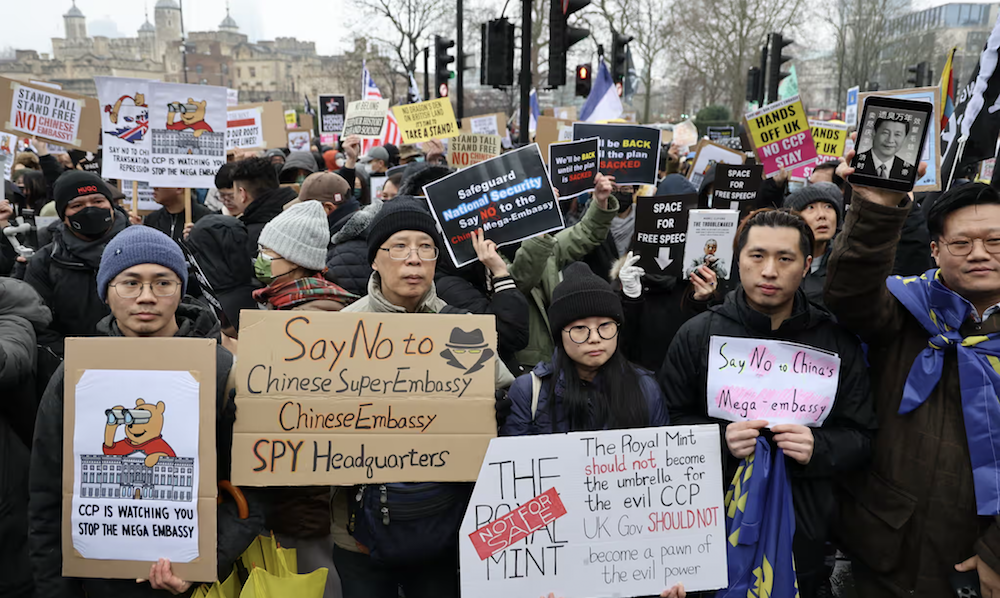Tenzin Nyidon
DHARAMSHALA, June 23: A highly controversial Chinese “super-embassy” near the historic Tower of London is set to receive ministerial approval within weeks, despite strong opposition from local communities, human rights organisations, and mounting concerns over surveillance and security risks. British security officials and the United States have both raised alarm over potential espionage threats posed by the development, which would significantly expand China’s diplomatic presence in the UK.
The Planning Inspectorate, which handles major infrastructure applications, issued a recommendation for approval in a report sent to Deputy Prime Minister Angela Rayner nearly two weeks ago. Rayner, who also serves as Communities Secretary, is expected to greenlight the project before September—paving the way for the construction of what could become China’s largest diplomatic outpost in Europe.
The proposed embassy complex will occupy the Royal Mint Court site, a sensitive and strategic location adjacent to key communication hubs in central London. The scale and security features of the planned development have led critics to describe it as a “mega” or “super-embassy,” raising significant concerns about surveillance, data interception, and threats to civil liberties.
Security officials in the UK and Washington have urged the Labour government to reconsider. “The United States is deeply concerned about providing China with potential access to the sensitive communications of one of our closest allies,” a White House official told The Sunday Times, highlighting fears about the site’s proximity to digital and financial infrastructure.
The Conservative-led government had previously blocked the mega-embassy project in response to local opposition, including from the Tower Hamlets Council, as well as concerns over public protest rights and national security. However, the project was revived after direct lobbying from Chinese President Xi Jinping, signalling Beijing’s strong interest in the location.
Human rights groups and civil society activists have condemned the development, warning that it may facilitate surveillance and harassment of exiled Chinese dissidents, Uyghurs, Tibetans, and Hong Kong activists residing in the UK. They argue that granting China a larger diplomatic footprint in the capital risks enabling transnational repression on British soil.
With final approval now imminent, campaigners and residents are preparing to launch a judicial review challenging the process. The Royal Mint Court Residents Association, backed by over 50 rights organisations and dozens of cross-party parliamentarians, claims the government has failed to properly weigh national security risks and community opposition.










